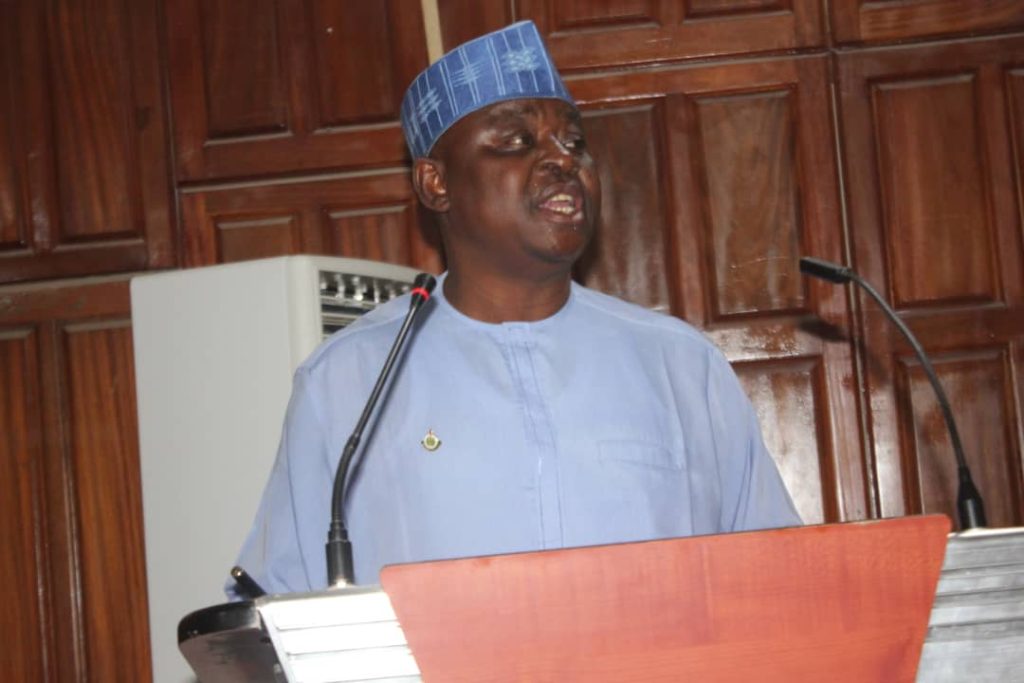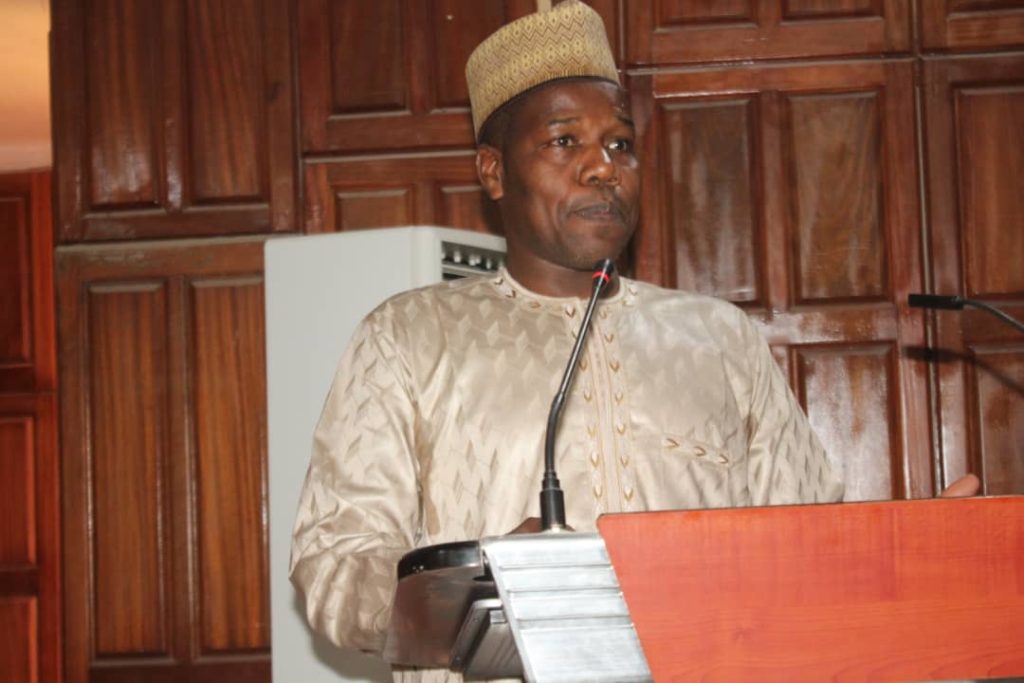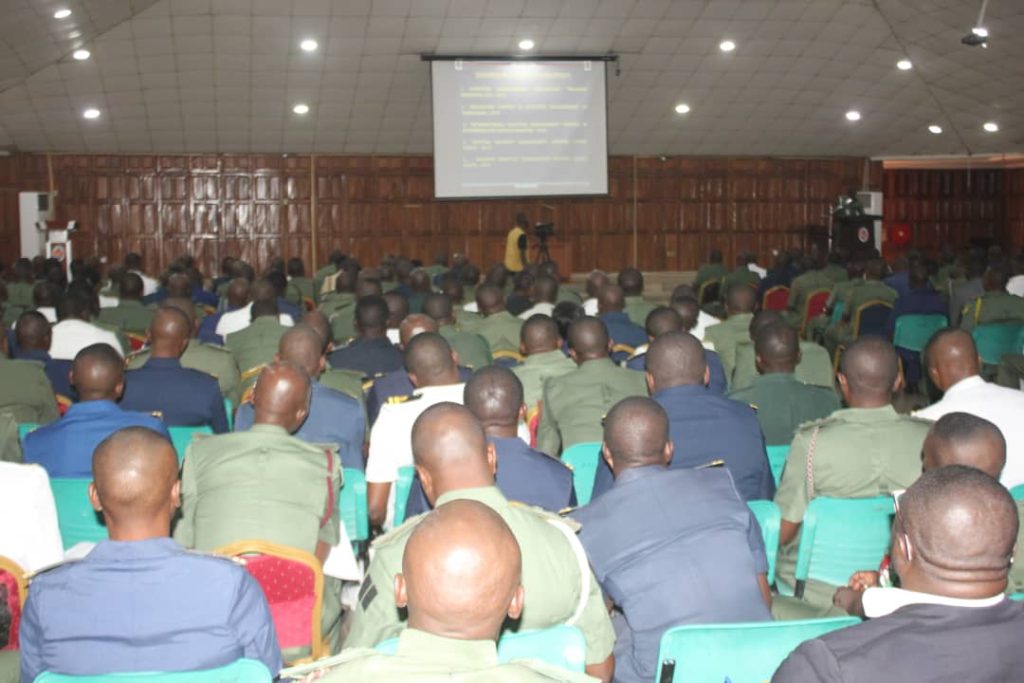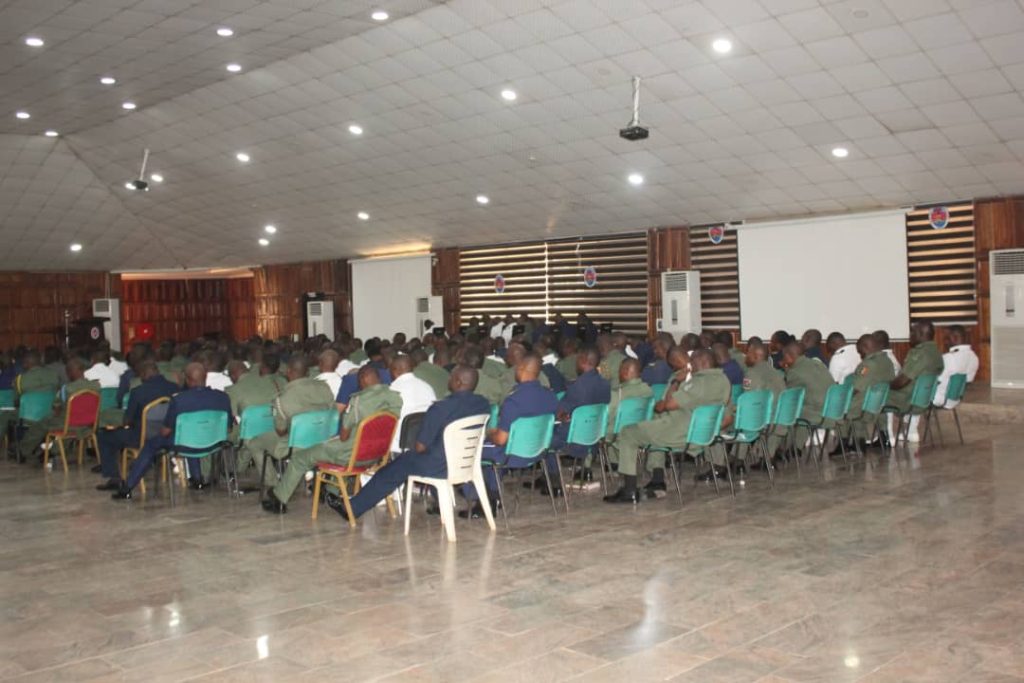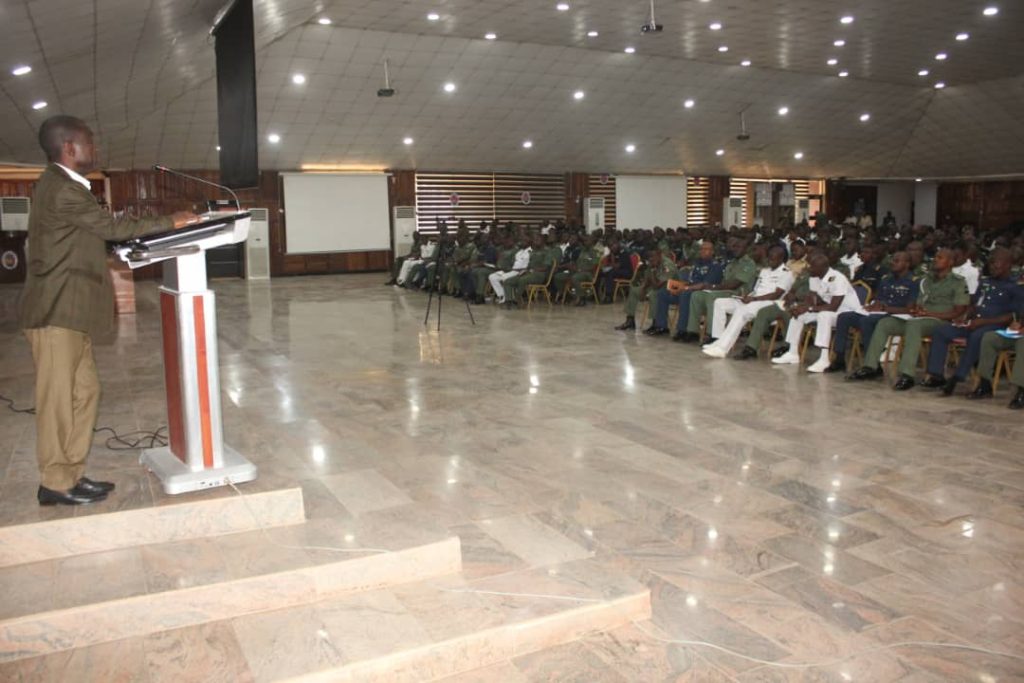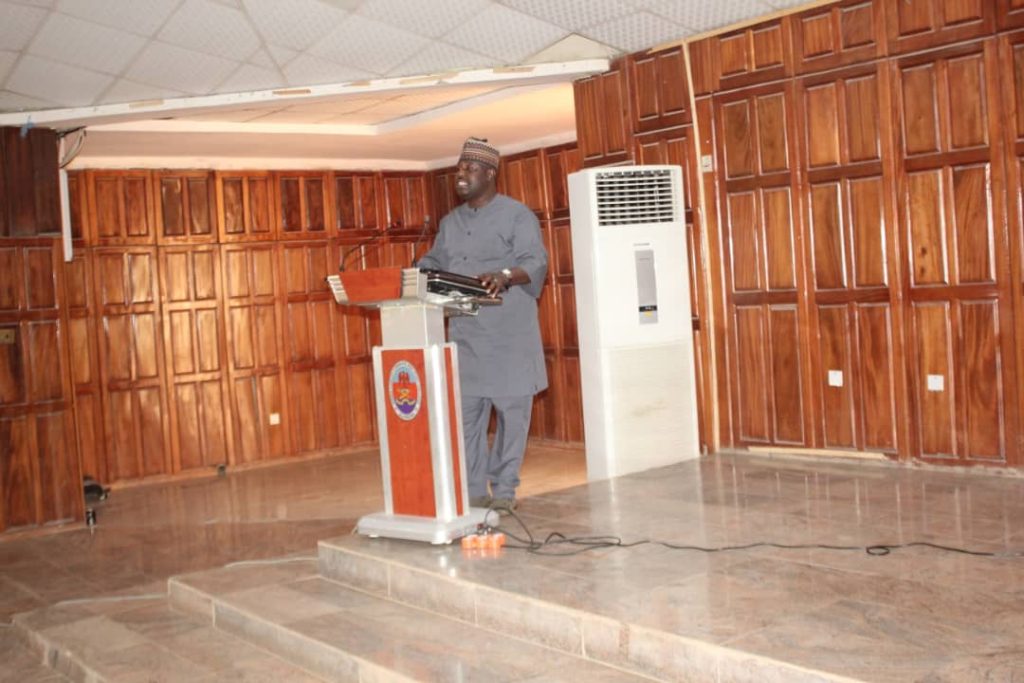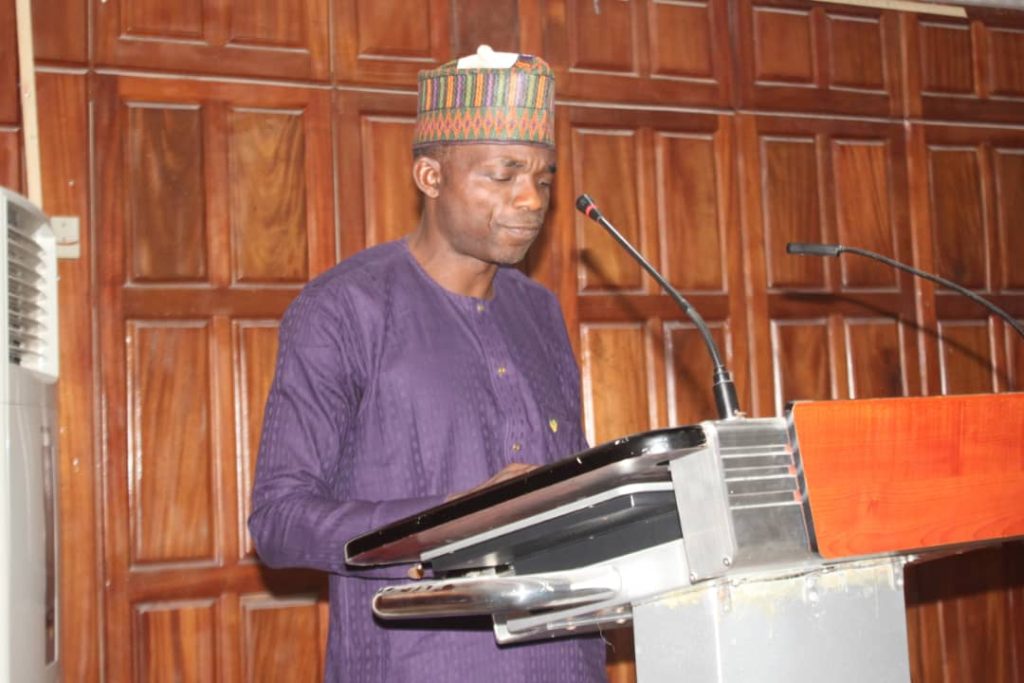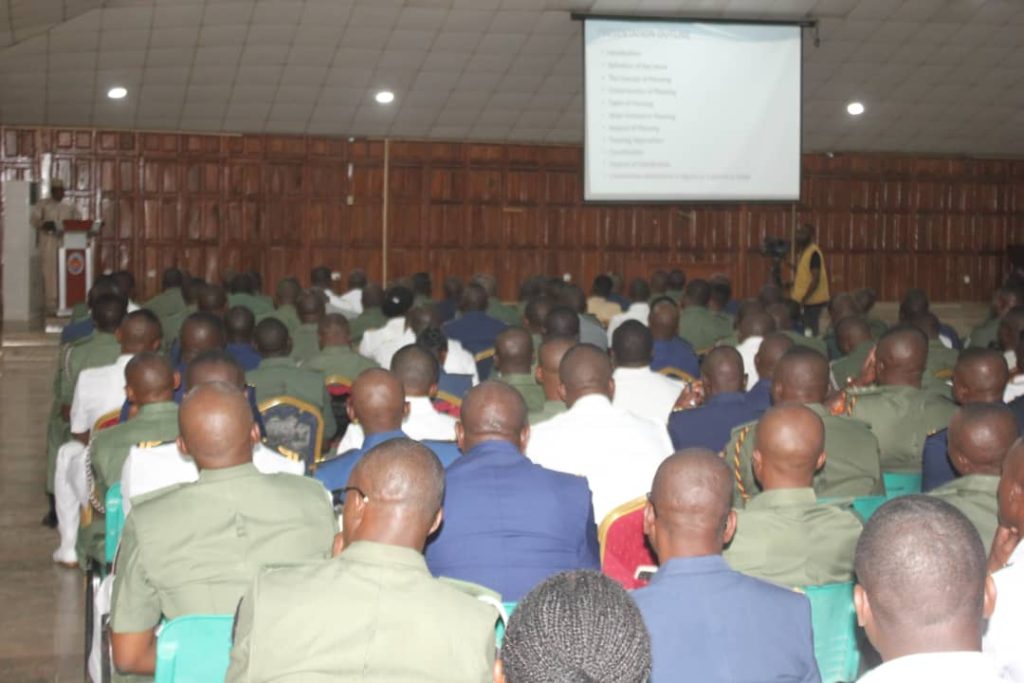
A team of resource persons from NEMA Headquarters and NEMA North West Zonal Officed led by the DD Search And Rescue Chonoko Isa Ishaya delivered a Disaster Management package to participants of Junior Course 95 at the Armed Forces Command and Staff College (AFCSC) Jaji Kaduna

